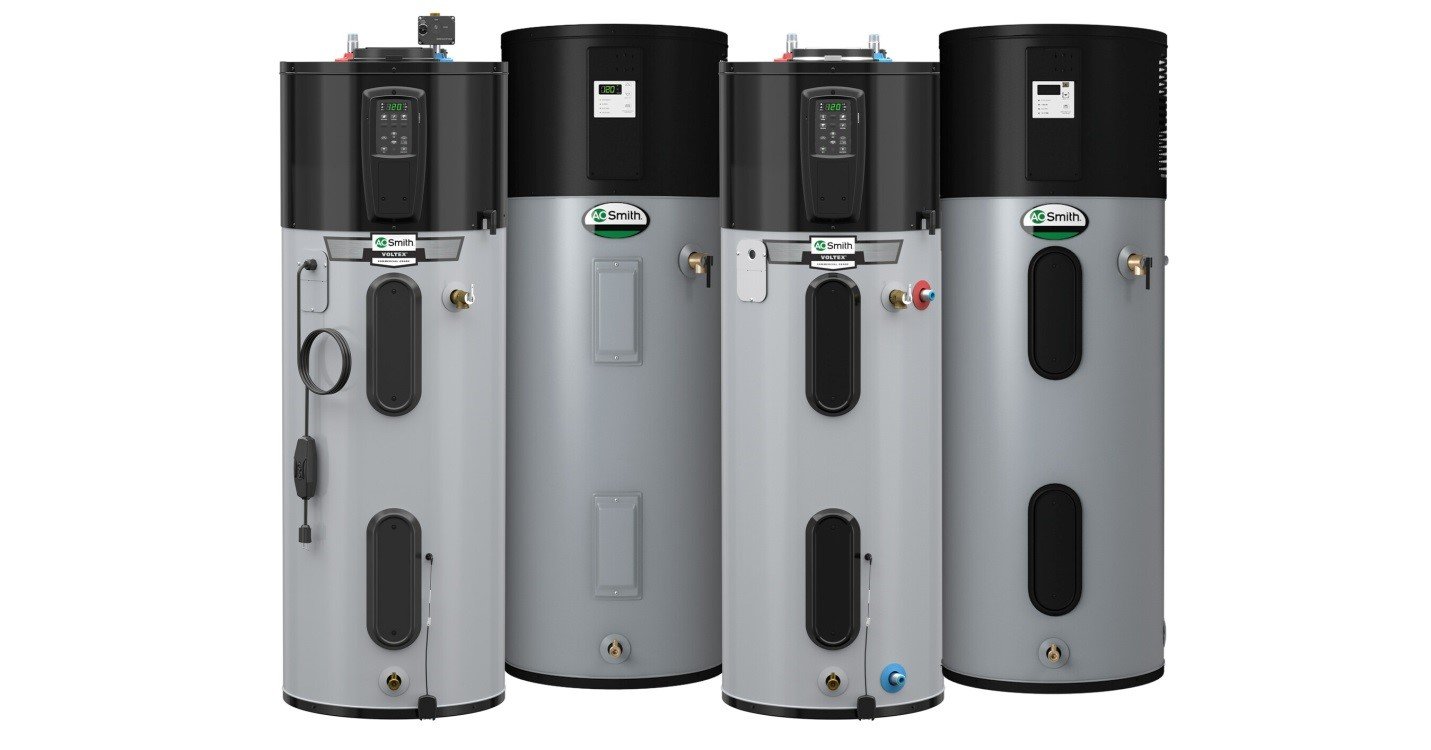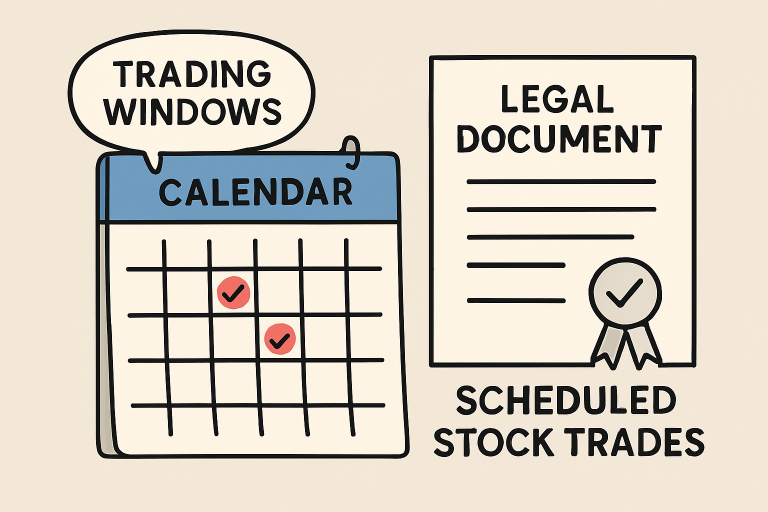Business
Business Bank Account vs Personal: Key Differences Explained

Researching the different ways and means of funding and financing a business is the first step for running a business successfully. And hence knowing the difference between the business Bank account and the personal Bank account helps you to understand when choosing a banking institution. As an entrepreneur you must know how each type of account works and the advantages each one provides. With a business bank account, you are able to automate your financial processes and enjoy various benefits like better record keeping and the ability to receive advanced financial services. With a personal bank account, you are able to provide various financial support for personal use. This article will outline these key differences in order to help you decide between the two.
Understanding Business vs Personal Bank Accounts
Fundamental Differences
When choosing between a business bank account and a personal bank account you should be aware of what the specific roles of each account are. A business bank account is specifically designed to cover the finances of a business with services such as payments processing, payroll processing, and the separation of business and personal expenses. On the other hand a personal bank account is designed specifically to serve individual needs including daily transactions, savings, and personal financial management.
Key Features of Business Bank Accounts
Distinct Functionality and Structure
When you think of the differences between a business bank account vs. a personal account, the main difference is what functions and structures a business bank account offers. Business banks are designed to be used for the purpose of keeping the funds in the company. A business bank account can be organized in a way that allows for both income and expenses. This can really help you track and report your financial activities better. Most importantly, an efficient separation between what’s in the business bank account and what’s in a personal bank account can make the bookkeeping process easier.
Tailored Financial Management Tools
Business bank accounts typically contain a range of financial management tools designed to cater to the specific financial needs of businesses. Much of this may consist of things like multi-user access, in which different employees or other parties have access to the account with differing privileges, automated accounting and payroll services, as well as a suite of cash flow management and financial forecasting tools, providing business owners with reports that inform them on their financial health and help them make informed decisions.
Enhanced Professional Credibility
Operating with a business bank account can significantly enhance your professional credibility. It presents a more professional image to clients and partners, demonstrating that your business is legitimate and well organized. When customers see a business name on invoices or checks, it builds trust and confidence in your operations. Furthermore, having a business account can make it easier to apply for loans or lines of credit, as financial institutions view businesses with dedicated accounts as more stable and credible. In summary, the key features of a business bank account from its distinct functionality to its professional benefits differentiate it markedly from a personal account. Understanding these differences is vital when navigating the financial landscape of business vs personal bank account choices, especially when considering platforms like Baselane that offer tailored solutions.
Advantages of Using a Business Bank Account
Separation of Personal and Business Finances
One of the major benefits of opening a business bank account is that it allows you to maintain a separate account for your personal money as well as for business money. It will simplify your tax filing and improve your overall financial organization. You’ll be able to keep a separate account for your business expenses as well as for your personal funds. So you won’t have to use a portion of your business funds for personal expenses. Not only that, it’s often required for legal and tax purposes (if you are in an incorporated business). Keep the separate accounts and you can protect your personal finances from any potential liabilities that may come with running your business.
Access to Business Banking Features
Business bank accounts usually come with specific features intended for businesses. These might include credit facilities, merchant services, payroll and invoicing management tools, and more. These features will help streamline your business operations and provide for a total bank experience. You may also gain access to dedicated financial advice and products. This can be valuable as you aim to expand and grow your business. With personalized resources at your disposal, you can compete for customers and opportunities. While some benefits are true when comparing a business vs. personal bank account, these points stress the importance of having a dedicated account for your business activities. Having a strategic financial boundary with a business account will not only help you with operational efficiency but also contribute to the overall success and sustainability of your business.
How Baselane Can Help Manage Your Business Finances
Comprehensive Financial Tools
Baselane is an innovative set of features designed to make your business finances as simple as possible. And unlike the regular banks, they no longer do manual bookkeeping. With this kind of automation, tracking and reporting of expenses, plus detailed reports about overall finances, Baselane gives you control over how your finances are running so that you can make the best possible decisions to increase your business’s cash flow and planning for future expansion.
Enhanced Cash Flow Management
Not only is it hard to manage your cash flow effectively when you use your personal bank account for business purposes, but Baselane’s money management tools make it a breeze. For instance, they help you with forecasting your cash flows and you can sync them with your financial calendar so you can anticipate any dips in your income and allow you to plan ahead for how you’ll operate your business with safety and efficiency. To sum up: From a personal bank account to Baselane’s business solutions you can significantly improve your financial management and gain clarity, security and strategic insight to the economics of your business.
Choosing the Right Account: Business vs Personal Bank Account Considerations
Understanding the Essential Differences
When considering a business vs personal bank account, it is important to understand the main differences between them. The most basic of these differences is the purpose for which a personal bank account will be used, i. e., to manage one’s own personal finances (e. g. savings, daily expenses, bills). Business bank accounts are designed to support the financial needs of a business, where services include payroll services, merchant services, and business loans. These services can make the process of running a business much easier than with a personal account.
Assessing Your Financial Needs
To decide what kind of account you want to have, you should consider your financial situation: If you run a business, even if you are small, it is necessary to get a business bank account to take full advantage of all the benefits that come with a business account. Its possible to make clear accounting and tax filing with a separate business account, as well as gain credibility with vendors and clients. On the other hand, you may not need to worry about working with anyone when you are just doing personal finances. Your personal account might provide you with good services like simple bank accounts with low fees.
Legal and Tax Implications
Legal and tax considerations are very important to consider when choosing between your business and personal account. Mixing personal and business finances can be a pain point when it comes time for audits, and will hurt the protection you have regarding legal liability. Using a business account ensures your business is separate from your personal funds, protecting both of you in the event of an investigation. It also often offers more advanced record keeping features, like managing expenses and meeting planning for the tax season for maximum efficiency. Choosing between business and personal accounts is an essential financial decision. By knowing the difference, you can create a choice that is aligned with your goals and operational needs to ensure peace of mind for both yourself and your business.
Conclusion
Business accounting vs personal accounting when it comes to managing your money, there are two main categories of bank accounts: a business account and a personal account. When you’re looking at the different options available to you, it’s important to keep in mind that a business account will provide better features for growing your business, as well as providing more trustworthy accounts to clients and partners. Your accounting should also include financial and legal aspects to help ensure you have the best protection for yourself in the long run. By setting up a business bank account, you’ll position your business for efficient and professional finances that make better sense for you and your customers.
Business
Why Invest in Digital Marketing & How to Choose a Company in Boston

If you have just recently started a business in Boston, or you’re thinking of doing it, there’s no doubt that you’ll have to think about marketing. The same goes for if you’ve been running a business for a while, because the need for investing in marketing never really stops. After all, you can’t succeed on a market that is so competitive without using the right strategies to stand out, reach potential customers, turn them into paying ones, retain them, and generally build a great brand image.
Here’s why investing in digital marketing is a good move: https://www.forbes.com/councils/forbesbusinessdevelopmentcouncil/2022/06/21/7-reasons-to-invest-in-your-website-and-digital-marketing-strategy/
Of course, the modern world has brought about some changes to the way we are all doing business. Meaning, thus, that in addition to finding a way to stand out offline, you’ll need to do the same thing online. To put it differently, you will absolutely have to think about investing in digital marketing today. And, if you are not sure why, then you should keep on reading to find out.
Apart from not being sure why investing in it is a good idea, you may also not be sure about how to do it right. More precisely, you may not know how to choose the right company in Boston to provide you with these services, because you absolutely know already that you won’t be able to do it alone, and that you will need to have the right pros on your side. And, well, that is another topic we’ll cover for you today.
Why Invest in Digital Marketing
Naturally, we are going to begin with the question of why it is that you should invest in digital marketing in the first place. After all, there would be no point in talking about how you can find and hire the right pros in Boston if you’re not even sure that you need them. So, let us first tell you more about why you need them. Learn more about the benefits.
Everyone Is Online Today
First things first, everyone is online today, and that is a fact that you need to accept. This goes first for your customers, meaning that they will search for the products and services you are selling online, so it would serve you well to appear in front of them when they are doing so. But, it also goes for your competitors. Your competitors are investing in digital marketing, so if you don’t, they are bound to snatch most of your customers, which is not what you want. So, invest in this to stay competitive, and to keep on gaining customers.
Reach the Right Audience at the Right Time
Digital marketing is not simply about getting the word of your existence out there. It is more so about letting the right people know of your existence, and at the right time. That is, you want to appear in front of people when they are searching precisely for what you are offering, possibly with the intent to buy, as that is sure to help you get more customers and boost your profits. And, digital marketing makes it happen.

Build Trust and Credibility
Moving on, when you invest in various online strategies, you will succeed in establishing yourself as a reliable and trusted source. In simple words, you will establish yourself as authority, which will build trust and credibility, and thus help you boost your brand recognition and reputation, and ultimately become a known name in your industry. And, this is certainly what you want.
Get Measureable Insights
Another great reason why you should invest in digital marketing is because you will get measureable insights. You will know precisely which strategies are working perfectly, and which ones may need some adjustments. You’ll understand consumer behavior better, which will help you make more informed and smarter business decisions.
A Cost-Effective Marketing Solution
Finally, you should always keep in mind that this is a cost-effective marketing solution. The ROI can be amazing, especially if you choose the right pros in Boston to do the work for you. Which is precisely the next topic we will cover below.
How to Choose a Company in Boston
So, how can you choose the right company in Boston to do this for you? Well, you’ll come across numerous one through a few simple online searches, or through recommendations. When you, thus, come across Helium Digital Marketing Boston or any other experts, take time to research them. Check their experience for one thing, and not only general one, but also specific industry and local experience.
Then, remember to read some reviews that have been written by previous clients, as those will help you determine the reputation of the potential companies. Moving on, interview a few of the candidates, ask any questions you may have, and compare all the info. And, finally, get more quotes and compare them too, but all while keeping the rest of the mentioned factors in mind as well.
Business
Buying a Plug in HPWH: How to Do It Right

As a homeowner, you undoubtedly want to maintain your household perfectly, and to ensure comfort, as well as the smooth completion of all those daily tasks. And, of course, you will need hot water for most of those things, such as cooking, washing the dishes, bathing, and numerous other things. To have hot water, naturally, you will need to have a great water heater installed. So, whether your current one isn’t working well, or you’re looking to install a new one at a new property, you will certainly want to get a great one.
If you’re wondering how to replace one, this may help you understand: https://www.thespruce.com/replacing-a-water-heater-1824920
Now, when you first figure out that you need to replace your current device, or when the time comes for you to buy a new one at that new property, you will probably spend some time looking at those different types that exist on today’s market, in an effort to make the best choice for your home. And, well, that is when you will come across numerous different devices, including the plug in heat pump water heater. There is certainly no doubt that that one will grab your attention.
After all, we are talking about a water heater that is known for being highly energy efficient. And then, the fact that it is a plug in one means that you can have it easily installed at your property, without having to do any additional electrical or plumbing work, since the device plugs into a standard household outlet. Furthermore, these are also quite durable, meaning they will pay off in the long run, especially when you get a highly energy efficient one that will save you money on electricity bills, as well as if you potentially make use of some rebates and incentives that could lower the initial costs.
Anyway, the fact that you are here tells me that you have already decided to get this plug in HPWH for your property. The only thing left to do now, thus, is figure out how to, well, do that the right way. That is, how to buy the perfect device for yourself. And, that is something that we will discuss below, taking you through the steps that you should take, as well as letting you know of the factors you should consider in order to ultimately make the perfect decision. Click this to learn what you need to know about HPWHs.

Choose the Right Size
It should go without saying that choosing the right size is of utmost importance here. And, to select the right size, you will need to determine your particular household needs, as well as think about the actual space where you want to have this device installed. Choosing the right tank capacity is definitely crucial, so don’t make any hasty decisions here, and get some advice from professionals if you’re not sure how to make this choice on your own.
Check Efficiency Ratings
Moving on, you will also have to check the efficiency ratings. When getting a plug in HPWH, you can surely expect the device to be energy efficient. Yet, you should know that there are different ones out there, and that their energy efficiency ratings are also different. Your task here is to get a device that has a good energy efficiency rating, as that is how you will save money on electricity in the long run.
Consider Noise Levels
Most plug in HPWHs tend to be quiet, but this is something you should check, instead of assuming. This goes especially if you’re planning on having the device installed, say, near a sleeping area, or in a small apartment. The idea is for you to check the sound ratings before making any kinds of buying decisions, if the noise level is a factor for you.
Research Different Brands and Compare
Naturally, in addition to simply checking the devices and their quality, you should remember to research the different brands as well, and then compare them. The goal here is for you to get an amazing, Easy-install plug-in heat pump water heater from a reliable and reputable brand that is known for offering great quality products. So, take time to research those brands out in more details, and then ultimately choose the best one for you.
Keep Warranties in Mind
Keeping warranties in mind is also of great importance here. In short, you want the professionals you get this product from to offer you warranties on the device. So, check those out to see how long they last and what it is that is covered.
Compare the Prices
Finally, remember to compare the prices. But, also remember to check for tax credits, rebates and incentives. That way, you will ultimately get the best plug in HPWH for a completely fair price, and thus save on your investment right from the start.
Business
Insider Trading Plans: A Practical Guide for Corporate Executives

Introduction to Rule 10b5-1 Trading Plans
Navigating insider trading regulations is a critical responsibility for corporate insiders and executives. The SEC’s Rule 10b5-1, established in 2000, was designed to provide executives with a legal avenue to trade company stock without the risk of being accused of insider trading—so long as the trades are set up in advance according to predetermined criteria. 10b5-1 trading plans are structured to allow such scheduling, helping insiders demonstrate that trades were not influenced by material nonpublic information (MNPI) at the time of plan adoption.
These plans are increasingly important given today’s volatile market environment and the heightened scrutiny surrounding executive stock sales. As regulatory scrutiny increases, having a robust 10b5-1 plan is not just a good idea—it’s essential for maintaining transparency, supporting effective compliance, and protecting both the individual and the corporation.
By leaning on these predetermined schedules, corporate officers can focus on running the business, secure in the knowledge that their trades are insulated from legal risk, so long as the rules are strictly followed. This blend of rigor and flexibility is why so many companies encourage key personnel to use 10b5-1 plans as a core tool for insider trading risk management.
For those new to this topic or seeking to understand the nuances of regulatory compliance in executive trading, this guide clarifies the structure of 10b5-1 plans, highlights key recent changes, and offers practical implementation tips.
Recent Regulatory Changes and Their Implications
In December 2022, the Securities and Exchange Commission made significant amendments to Rule 10b5-1 to address potential abuses and increase investor confidence. Some of the most notable changes include:
- Cooling-Off Periods: Directors and officers who establish a 10b5-1 plan must now wait a specified period before the plan’s first trade can be executed. This cooling-off period, commonly 90 to 120 days, is meant to ensure that trades are not coordinated on the basis of inside information.
- Restrictions on Multiple and Overlapping Plans: Executives are now restricted from using multiple, overlapping 10b5-1 plans or single-trade plans, practices that previously enabled potential manipulation of trade timing and volume.
- Enhanced Public Disclosure: Companies must provide more detailed disclosures in their quarterly reports to the SEC about insiders’ adoption, modification, or termination of 10b5-1 plans, thereby boosting transparency for investors and market participants.
These reforms are designed to close loopholes and elevate market integrity. Executives and companies alike need to adapt quickly to these amendments in order to avoid unwanted regulatory attention or reputational damage. For an in-depth breakdown of these SEC rule changes, see this SEC press release. Overall, the updated Rule 10b5-1 requirements underscore the SEC’s broader push for greater transparency, accountability, and investor protection. Staying informed and aligning internal trading policies with these reforms can help organizations maintain compliance while reinforcing trust with shareholders and the broader market.
Best Practices for Implementing 10b5-1 Plans
To ensure both full regulatory compliance and the credibility of insider trading defenses, executives should adhere to the following best practices for designing and managing their 10b5-1 trading plans:
- Establish Plans Only During Open Trading Windows: Initiate or modify plans when you do not possess MNPI, ideally during company-authorized open trading periods. This supports the plan’s good-faith nature.
- Respect the Required Cooling-Off Period: Never execute trades until the mandatory cooling-off period has elapsed. Any deviation can undermine the plan and raise red flags with regulators.
- Avoid Overlapping Plans: Limit yourself to one active 10b5-1 plan to avoid the appearance of gaming the system and to align with new restrictions.
- Maintain Detailed Records and Approvals: Document the rationale, approval process, and dates of plan adoption, modification, or termination. These records will be essential if the plan’s legitimacy is ever called into question.
- Conduct Regular Reviews: Revisit your plans periodically with legal counsel and compliance teams to ensure ongoing alignment with current laws and your company’s policies.
Many experts recommend a proactive approach to plan management, including regular training sessions and audits, to help prevent unintended violations.
Conclusion
For corporate executives and insiders, 10b5-1 trading plans are indispensable tools for lawful participation in equity markets. As regulatory expectations and enforcement intensify, careful adherence to best practices—matched with rigorous disclosure and diligent plan maintenance—forms the foundation for effective compliance. Remaining informed, seeking regular legal counsel, and following the latest guidance from agencies like the SEC will help executives safeguard their interests and uphold corporate integrity for long-term trust with stakeholders.






